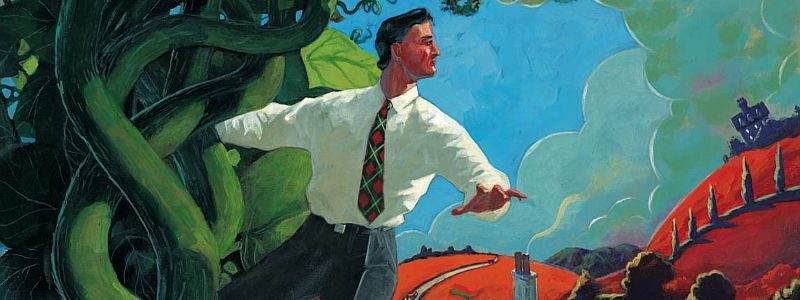Irish Entrepreneur Magazine – A Brand New Start
Entrepreneurs can come in all shapes and sizes, but we typically have one thing in common: an eagerness that’s difficult to resist.
This entrepreneurial spark, this restless enthusiasm, is what sets the self-starter apart from the rest and fires our success. We are impatient to get going (it’s no accident that we’re often described as go-getters). We’re usually so smitten by the beauty of our idea, so tickled by its ingenuity and by the way it neatly resolves the problem that we just want to get on with it and deliver the perfect solution to our customer.
Ah yes, our customer. Sometimes, in our eagerness to impress, we forget the customer. This impatience can be the downfall of the entrepreneur. But our customer is spoiled for choice: so why choose what we have to offer? Let’s put ourselves in the shoes of the buyer for a moment. As customer, we are inundated with options, distracted by the countless demands that are made on our time. In all but the rarest of cases, we’re unlikely to be as smitten with your marvellous idea as you are. Then how do we choose? Increasingly, customers are making their choices on the basis of brand.
So which brands are customers likely to choose in the year ahead? We can safely predict that it is those businesses that make most sense of what they do for their customers. But most enterprises fly under the radar until they are well established and have moved beyond an early-adopter customer base.
One exception for me is Cork-based start-up, YouGetItBack.com, which has impressed with how effortlessly it spotted an opportunity and made a space for itself in the market. Its pitch is directed at the Good Samaritan in all of us. Apparently, a lost item that has been tagged is up to three times more likely to be returned to its owner. YouGetItBack.com’s deceptively simple graphics, centred on that eager dog, Fetch, have recently been awarded the Grand Prix for effectiveness at the Graphic Design Business Association’s awards. Their ‘lost and found’ idea is a simple one, brilliantly delivered.
I’ve also been impressed by the emerging Clear Ink, which was set up early last year by journalists Margaret Ward and Sarah Marriot to champion and teach the use of clear English in business. In my book, choosing language that is readily understood is hugely important for any brand that wishes to make immediate sense of what it does and build solid bridges to its markets. It is especially important for the entrepreneur who offers a technical product or service and is more likely to enthuse using trade-speak and jargon that leaves the customer feeling confused and left out.
Amongst the more established brands out there, I’ll be watching with great interest the progress of the once-great brand Superquinn in the year ahead. I have previously lamented the decline of a brand that for a very long time seemed to have it all: the charismatic leader, the clear positioning in its market, the compelling proposition, the note-perfect communications and the unswerving loyalty of its customers. Having watched it struggle and fail to move beyond its founder’s personal vision and drive, I’ve seen enough to suggest that its new owners may be about to make the brand great again. Whilst its previous owner threw away much of the advantage Superquinn enjoyed as the fresh food specialist (allowing its more cynical rivals to step gratefully into the role), there is evidence in its recent moves that there is life in the old brand yet.
I shall also be keeping a close eye on the fortunes of Halifax, the bank formerly known as the Bank of Scotland, Ireland. Whilst Halifax is certainly much less of a mouthful than the heavily contrived moniker it replaces, it seems to me that its owners are a little too cock-sure that our familiarity with the brand from television means that Halifax will quickly become a banking pet-name for Irish customers. Contrast the way in which another carpetbagger, Vodafone, carefully wooed its Irish audience with Halifax’s clumsy fireworks celebration of its arrival over here.
Finally, I suspect that few of us will be able to keep our eyes off a brand with which we enjoy a real love-hate relationship. Ryanair, which has made its fortune on the grounds of playing our plucky David to a multitude of Goliaths, just may have taken a serious misstep from a branding standpoint in its move to take over the national airline. David simply does not swallow Goliath whole and Michael O’Leary may have failed to identify a credible villain in this particular piece. This may hurt his brand more than he appreciates.
From start-up to upstart then, it seems that branding will continue to be the make-or-break issue for business.


